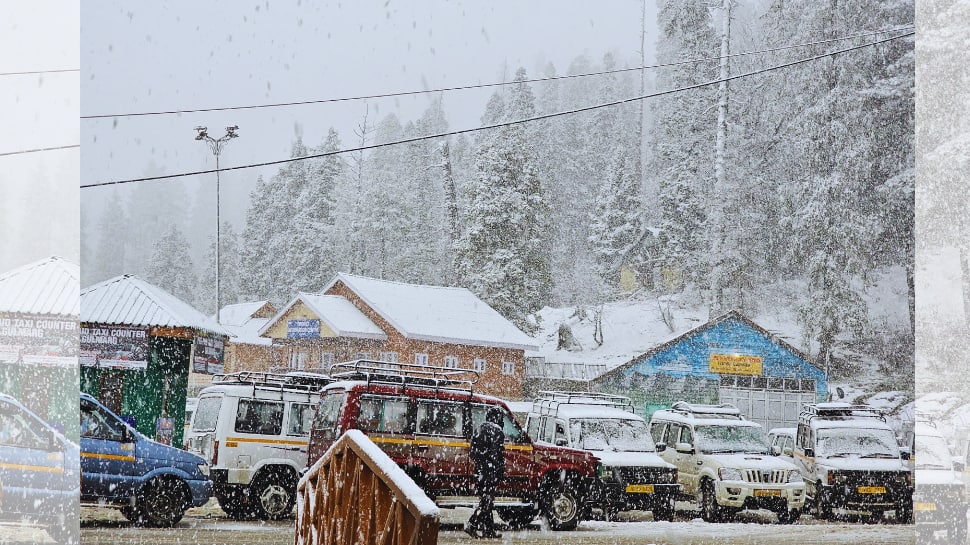Kashmir: Unusual Snowfall In April Triggers Climate Change Concerns
Gulmarg, renowned as one of Kashmir's top tourist spots, is currently resembling a winter wonderland despite it being April.
Trending Photos
)
Gulmarg: Kashmir is currently experiencing unprecedented late-April weather, with heavy snowfall occurring in its hills and tourist destinations. Many locals and tourists are taken aback by the substantial snowfall in places like Gulmarg and other hilly areas. This phenomenon is attributed to climate change, and if proactive measures aren't taken, future generations may bear a hefty price.
Gulmarg, renowned as one of Kashmir's top tourist spots, is currently resembling a winter wonderland despite it being April. Snowfall has persistently blanketed Gulmarg for the past three days, transforming everything from grass to pine tree peaks into a pristine white landscape.
While these scenes evoke warmth and joy among people and locals, an underlying fear has emerged. While the views are captivating, this unexpected weather is unusual for Gulmarg during spring. Typically, this time of year sees lush green grass, blossoming flowers, and refreshing breezes. It's becoming evident to many that the effects of global warming are surfacing, signaling significant climate change.

Tourist Uday voiced his concern, stating, "The impact of global warming is undeniable. Here we are in mid-summer, yet it's snowing. Action is imperative. The government must take decisive steps, but it's not solely their responsibility. Every individual worldwide must contribute. We must protect the earth, plant trees, and halt deforestation. The power lies within us, and the government must also act decisively."
Local ski instructor Abdul Hamid expressed his observations, saying, "I've been here for about 25 years, primarily involved in skiing. Previously, snowfall would commence in December and last until February or mid-March. However, over the past four years, we've noticed minimal snowfall in December, followed by none in January and February. It's perplexing; perhaps it's the impact of global warming. This year, there was no snow in January or February, and now it's snowing in April and May. The changing weather patterns are concerning. Crops are suffering, snowfall is erratic, and even when it does occur, it quickly melts. This is alarming."
Normally, Kashmir experiences heavy snowfall from December to February. However, this year witnessed dry weather across the region during these months, only to be followed by heavy snow and rain in the spring.
Over the past three days, the Union Territory of Jammu and Kashmir has been hit by continuous snowfall and rainfall in its mountains, resulting in flash floods, road waterlogging, and temporary closures of numerous highways. The situation has led to the closure of schools across Kashmir and avalanche warnings in higher areas, with people advised against venturing near rivers.
Meteorological Director Mukhtar Ahmed stated, "Heavy rain and approximately one foot of snowfall have been recorded in higher areas. The weather is expected to improve from the afternoon of April 30th until May 5th, remaining dry until May 7th. Notable snowfall has been recorded in various areas, with temperatures about 10 degrees below normal."
Across the Union Territory, including Handwara and Kupwara districts in North Kashmir, heavy rains have caused waterlogging, prompting school closures and road accidents. One tragic incident near Gagangir-Sonmarg resulted in the loss of five lives, with rescue operations ongoing for one missing person in the Sindh River. This extreme weather has shocked communities across Jammu and Kashmir.
Stay informed on all the latest news, real-time breaking news updates, and follow all the important headlines in india news and world News on Zee News.
Live Tv







)
)
)
)
)
)
)
)
)
)
